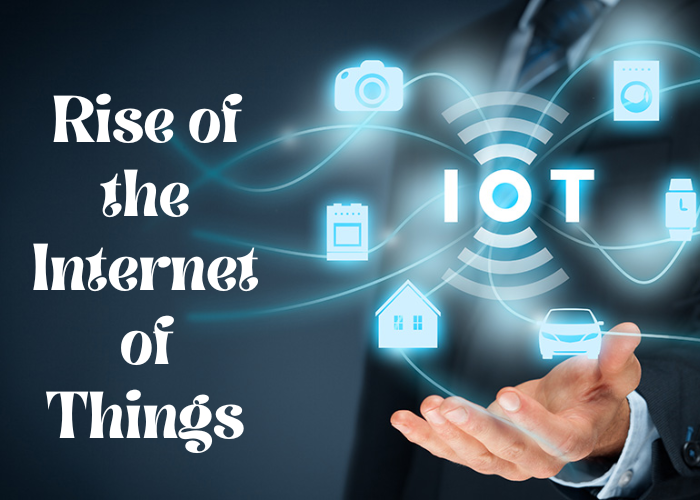In the past few years, the concept of the Internet of Things (IoT) has taken off and changed how we live our lives. Whether it’s by connecting everyday items to a home network, or allowing us to control multiple devices remotely through a single interface, the growth of IoT technology is transforming lives around the world, creating more efficient processes, reducing energy costs and even enhancing public safety. But alongside these major benefits, this new wave of innovation poses huge threats in terms of cyber security; what will be done to protect our privacy and data as more devices become part of an interconnected web? In this post, we’ll explore all aspects of the rise of IoT: from its potential uses and applications to some ethical issues that may arise due to its widespread adoption.
What Is the Internet of Things and How Does It Work?
The Internet of Things (IoT) is an exciting new industry that utilizes the potential of your everyday objects to connect to the internet and provide us with added convenience and data. This technology allows our objects, such as thermostats, home appliances, and cars, to autonomously collect and exchange data without human involvement using sensors, software, and other relevant technologies.
Through this network of connected devices, we can access information from anywhere on the planet instantly, making substantial improvements in communication speed and efficiency. Thanks to the rapid advancement of computer science and networking technology in recent years, companies around the world are now adopting Iot solutions for their products or processes to stay competitive in the market. This is just one example of how IoT technology has revolutionized modern society, allowing us to observe vast datasets about our environment faster than ever before.
The History of the Internet of Things and Its Development
The Internet of Things (IoT) has grown tremendously since its introduction in the early 2000s, offering convenience and ease to consumers and businesses alike. From home automation to industrial applications, IoT technology has revolutionized a wide range of industries by placing connectivity at the forefront. Since its inception, IoT devices have relied on sensors, networks, AI and machine learning to enable users to interact with their physical environment. Over the years, advancements in software and hardware have improved user experiences and facilitated the development of ever more complex solutions for a variety of different needs.
Companies now find themselves well-equipped to build end-to-end digital solutions that span across homes, vehicles, factories and even healthcare facilities due to constantly evolving standards for wireless communication, increased capabilities for processing data and higher consumer demands for personalization. The history of the internet of things is truly remarkable; it is only likely to continue advancing in order to shape our daily lives in ever more innovative ways.
How the Internet of Things Is Changing Society for the Better
The age of the Internet of Things (IoT) is here and a whole new era of unrivaled efficiency has been born. By connecting devices, machines, and other objects to the internet, the IoT is enabling greater access to real-time data and distributed applications. This is helping drive innovative solutions that are transforming how we experience life in areas such as healthcare, education, transportation, business operations, energy management and many more.
For instance, it’s now possible for medical professionals to remotely monitor patient vital signs improving how diagnoses are handled and offering greater insight into preventative care initiatives. Similarly, educational institutions are leveraging the IoT for enhanced analysis and large-scale data collection. Communities have also seen productivity increases thanks to city-wide networking initiatives that streamline public services and provide citizens with better access to critical infrastructure. All of these advancements demonstrate just how much our society stands to gain from this new digital future, from improved quality of life to higher economic growth, further proof that the Internet of Things is indeed changing our world for the better.
The Future of the Internet of Things and Its Impact on Society
As technology progresses, more and more objects are connected to the internet, making up what is known as the Internet of Things (IoT). Through this network, devices interact with each other without human intervention and share data with other sources. The implications of this technology on society are immense. IoT could revolutionize how individuals access information or services in their daily lives, especially in areas such as healthcare, education, home automation and smart cities.
However, there still remain many challenges to overcome when it comes to security and privacy that must be addressed before the true potential of IoT can be realized. Despite this, its growing prevalence means that its impact on our day to day activities may soon become more noticeable than ever before.
Conclusion
The Internet of Things is a term used to describe the network of physical objects that are connected to the internet. These objects can include everything from cars and appliances to heart monitors and light bulbs. While the Internet of Things is still in its early stages, it has the potential to revolutionize the way we live and work. It could also have a significant impact on society as a whole, transforming the way we interact with our environment and each other.



